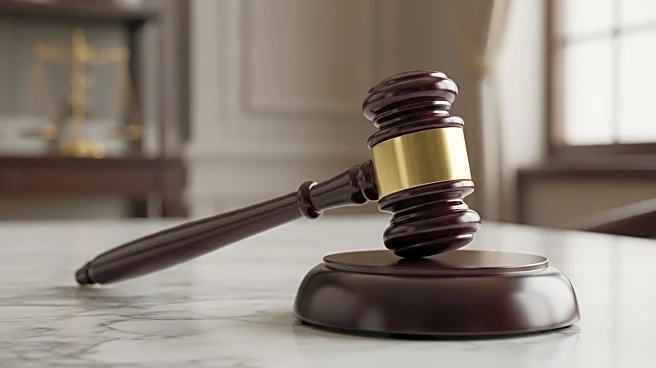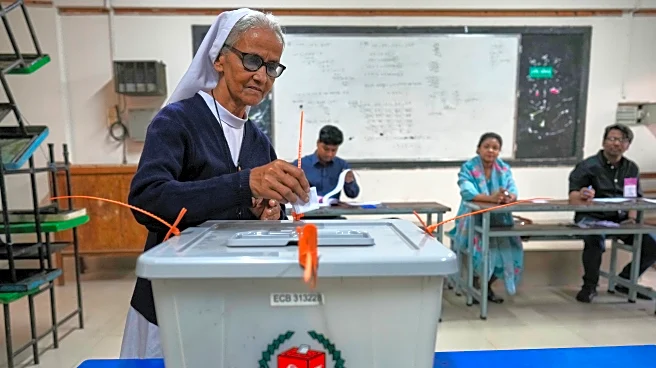What's Happening?
French President Emmanuel Macron and his wife, Brigitte Macron, are set to present scientific and photographic evidence in a U.S. court to counter claims made by conservative influencer Candace Owens. Owens alleged that Brigitte Macron was born male and later transitioned, a claim the Macrons are contesting through a defamation lawsuit filed in Delaware. The couple's attorney, Tom Clare, has indicated that the evidence will include expert testimony and photographs of Brigitte Macron during her pregnancies. This legal action follows similar allegations made in France, which were initially ruled in Brigitte Macron's favor but later overturned on appeal. The case has now reached France's highest appeals court.
Why It's Important?
This case highlights the ongoing challenges public figures face regarding privacy and defamation, especially in the digital age where misinformation can spread rapidly. The outcome of this lawsuit could set a precedent for how defamation cases involving public figures are handled in the U.S., particularly when claims are made without evidence. It also underscores the potential legal and reputational risks for influencers and media personalities who make unsubstantiated claims. The Macrons' decision to pursue legal action in the U.S. reflects the global nature of defamation issues in the internet era, where statements made in one country can have repercussions worldwide.
What's Next?
The court proceedings will likely involve detailed examination of the evidence presented by the Macrons, including expert testimonies. The case could attract significant media attention, potentially influencing public opinion and the legal strategies of both parties. Depending on the outcome, there may be broader implications for how defamation cases are pursued internationally, especially involving high-profile individuals. Observers will be watching to see if this case prompts changes in how defamation laws are applied across borders.
Beyond the Headlines
This case raises questions about the balance between free speech and the protection of individual reputations. It also touches on the ethical responsibilities of influencers and media figures in verifying information before making public statements. The legal battle may also influence cultural discussions around gender identity and the rights of individuals to privacy and dignity, regardless of their public status.









